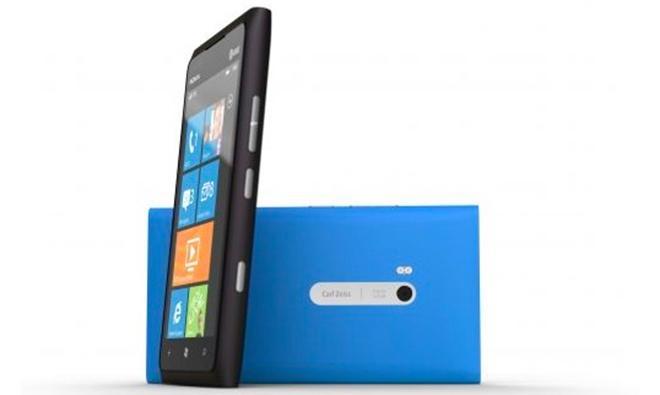Microsoft's proposed $7.2 billion purchase of Nokia's handset division has been called as a victory for Nokia, completing its transformation into a network infrastructure business. But now the difficult task of gaining traction in the highly competitive smartphone hardware market will be Microsoft's job.
Microsoft's proposal to buy Nokia's smartphone division will "remove the albatross" that is Nokia's Device & Services business, analyst Maynard Um of Wells Fargo Securities said in a note to investors on Tuesday. He believes the deal will strengthen Nokia's balance sheet while retaining its intellectual property with a 10-year non-exclusive licensing agreement.
The deal will also immediately provide Nokia with $1.9 billion in convertible bonds. And Microsoft has signed a four-year strategic licensing agreement for Nokia's "Here" maps platform, in which Microsoft will pay Nokia separately to license its mapping and navigation products.
As part of the deal, Microsoft will be able to use the Nokia brand in a limited capacity on the company's "feature phone" platforms. Nokia will be unable to license its brand for use with mobile devices for a 30-month period after closing, and will not be able to use the brand on its own products until the end of 2016.
The sale of its handset division to Microsoft, as well as the buyout of the Nokia Siemens Network, has now transformed Nokia into an network infrastructure focused business, Um said. Microsoft, meanwhile, has inherited a business "fraught with peril given competitive forces and its limited product acceptance."
Investors in Nokia responded positively to the news after it was made public on Monday, sending the Finnish company's stock price surging more than 40 percent. But investors in Microsoft were not as encouraged by the deal, as shares of the Redmond, Wash., company tumbled more than 5 percent in pre-market trading Tuesday morning.
Microsoft and Nokia have been closely aligned since 2011, when Nokia abandoned its declining Symbian platform and embraced Microsoft's Windows Phone as its sole mobile operating system for the company's high-end smartphone lineup. But Windows Phone has failed to regain Microsoft much ground in the highly competitive smartphone space, where Apple's iOS and Google's Android are dominant.
 Neil Hughes
Neil Hughes







-m.jpg)






 Charles Martin
Charles Martin
 Christine McKee
Christine McKee
 Wesley Hilliard
Wesley Hilliard
 Malcolm Owen
Malcolm Owen
 Andrew Orr
Andrew Orr
 William Gallagher
William Gallagher
 Sponsored Content
Sponsored Content







59 Comments
Two wrongs don't make a right.
[quote name="island hermit" url="/t/159319/7-2b-smartphone-business-sale-seen-as-a-win-for-nokia-major-gamble-for-microsoft#post_2388770"]Two wrongs don't make a right. [/quote] Indeed. Or, "the blind leading the blind". This is certainly a victory for Nokia whilst MS ususally gets confused with the tech they purchase, if they need to integrate it. Personally I see fail written all over, but strangely I hope to be proven wrong. The WP8 interface at least is [I]different[/I], though I don't like the cut off text and the live tiles don't do anything for me. Nokia used to have pretty easy to use menus, but those were dumb phones. Did they have anything smart in their smartphones? Easy to use menus and all that?
After seeing the news regarding "Microsoft acquiring Nokia mobile division" I looked up MSFT's actual press release. This is one of the most moronic deals I have ever seen in the tech space, and having worked for the #2 and #3 law firms in Silicon Valley I have seen a lot of deals. MSFT actually acquired nothing more than the employees and factories for the phone division, not the name, which they will need to license from Nokia, and "Nokia will continue to own and manage the brand". MSFT will also only license the Nokia HERE mapping program under a four year deal, and Nokia related patents for 10 years and, very importantly, on a non-exclusive basis. They did not acquire some of the most valuable assets - mapping and the services businesses. Thus MSFT has acquired the money losing operations, which includes 10's of thousands of employees and uncompetitive manufacturing facilities based on geographic location, and left Nokia with the profitable services, patent licensing, and the potential for advertising and licensing for the mapping business. BRILLIANT!!!! This should work out well for them, in a Kin and Surface sort of way...
While they're at it, Microsoft might as well buy Blackberry as well.
This analysis is bonkers. Nokia Siemens Networks lurches from small profits to massive losses and back again. The only reason that it's generating profit at the moment is that everyone is upgrading their equipment to 4G. Once that wave ends, NSN will be back in the red. The state of maps division is even worse. It has never made an annual profit. The only remaining piece of Nokia that's profitable is the patent licensing arm.
This is the death of Nokia. This is the ultimate loss for Nokia.